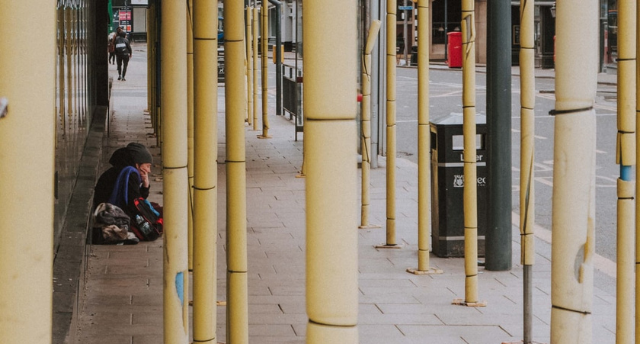
Freedom Day: a hollow promise for those with NRPF
After eighteen long months of social isolation, uncertainty and grief, the UK’s so-called ‘Freedom Day’ has arrived.
Today, the Prime Minister has given the green light to the lifting of the final coronavirus restrictions across the country, which will see nightclubs reopen, full capacity events, and unlimited mixing within venues – with a cautious call on the public to learn to ‘live with the virus’.
Boris Johnson’s turn towards emphasising personal responsibility for mitigating the risks of coronavirus has been met with fierce criticism, including from many of his own MPs.
A running theme in the backlash is that one person’s freedom is another’s fear. How are the clinically vulnerable, for example, supposed to practically heed the government’s advice to avoid those who have not been double-jabbed? Under the current guidance, are those at greatest risk from catching Covid ultimately best off remaining socially isolated, at home, while the inoculated enjoy their promised freedoms? And for the vulnerable who have no home at all – or, indeed, for those who must live with the dangers of housing instability, as well as with the risk of Covid – what is the advice from government?
Over the height of the pandemic, the Everyone In initiative provided over 33,000 people in danger of homelessness with Covid-secure emergency accommodation. The programme provided a new way for rough sleepers, and those in unstable, unsafe housing situations, to access lifesaving accommodation: including, vitally, those with no recourse to public funds (NRPF).
The NRPF condition – a hallmark of the government’s ‘hostile environment’ approach to immigration policy – prevents migrants to the UK from accessing almost all forms of state support, until they are granted indefinite leave to remain (ILR). This means that migrants with NRPF are unable to work, to access Universal Credit, or to receive housing benefit – all while being required to pay thousands of pounds in extortionate Home Office visa fees.
As the Prime Minister was baldly reminded in May last year, at a hearing in front of the government’s liaison committee, this condition directly results in thousands of families across the UK being plunged into avoidable, yet enforced, destitution.
We know from our work with Praxis Community Projects just how vital a secure home can be for migrants facing homelessness as a result of NRPF. But as the temporary safety nets of the Everyone In era are yanked away, and those most vulnerable to coronavirus must yet again face the grim prospects of homelessness and rough sleeping, the government’s promise of ‘freedom’ for all rings ever-more hollow.
For those with no way to access safe, stable accommodation as public health measures lift, the reality is that the ‘new normal’ of living with coronavirus means a return to a life without shelter.
The pandemic showed how councils can be equipped to break down barriers to safe housing faced by vulnerable rough sleepers, including those with NRPF, by being granted the necessary resources and funding. This support must not be retrospectively characterised as temporary ‘disaster measures’ in the government’s post-lockdown housing policies. The UK’s endemic housing crisis is needlessly exacerbated by government measures to ‘protect’ its public funds, at the expense of migrants’ lives.
If Boris Johnson’s vision of a free, assured and resilient society is truly to be realised in the wake of the pandemic, then it is ultimately his own personal responsibility to protect the most vulnerable: with joined-up housing, support and healthcare provision.
The Everyone In programme must urgently be reignited: not just as a sticking plaster for those hit worst by the effects of the pandemic, but as a long-term approach to repairing the damage of coronavirus on the housing crisis and society at large.
Those who have experienced the devastating effects of living with NRPF know that real policy change – not just impatience with living restricted lives – is the only way out of the crisis. Until then, their ‘Freedom Day’ is a long way off.
